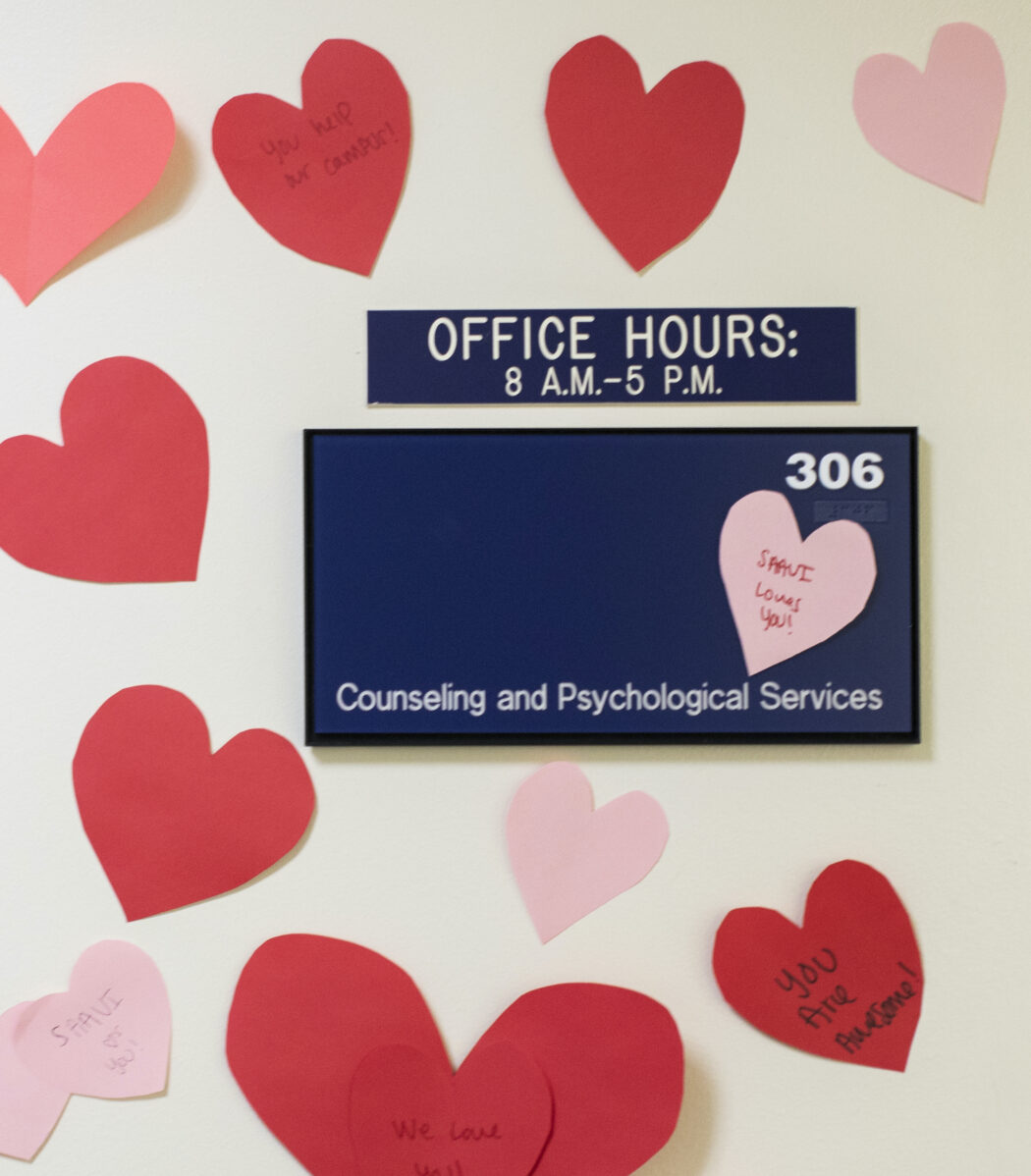Suicide prevention at USU
On Feb. 28, Utah State University held a suicide prevention training for students. The Zoom training, one of several held this year, focused on informing students on how to look for and respond to suicidal thoughts in loved ones.
This is only one of several efforts by USU to prevent suicide and promote mental wellness.
“Why is it important? Because it’s a real concern,” said Eri Bentley, an employee at USU’s Counseling and Psychological Services, or CAPS. “Also, because the stigma and socialization makes it hard for people to talk about it.”
The university offers several resources in terms of suicide prevention. Such resources include counseling, medication prescriptions and trainings.
There are several trainings open to students throughout the year. These trainings cover topics such as how to recognize signs of distress in loved ones, how to approach someone who may be thinking about suicide and how to get help.
“There’s at least three or four per semester,” Bentley said.
The university offers specific trainings for faculty and staff. This includes specialty sessions for people such as resident assistants and other faculty that work with students.
“We’ve done training, for example, for USUSA’s new officers,” Bentley said.
Oftentimes, students turn to their friends first when they are struggling. It’s important students understand how to respond to friends who may be having a hard time.
“It’s important that we — not just students but all of us — learn how to identify signs of distress,” Bentley said, “and know how to reach out so that we can extend the hand and check in with each other how they’re doing.”
But not all students reach out if they’re struggling.
“About half of the students reported they don’t talk to anybody when they’re struggling,” Bentley said.
A good portion of the training sessions focus on how to spot signs that someone may be struggling in the case they don’t reach out for help. The sessions focus on the idea that not everyone displays distress in the same way.
While one person may eat less, sleep more, or become more reserved, another student may exhibit the opposite. For example, they could have more outgoing behaviors, eat more or sleep longer.
Understanding a person and recognizing a change in their regular behavior is the first step to noticing signs of distress.
Bentley suggests approaching the subject of suicide directly. Beating around the bush may not make the person feel comfortable opening up.
“It feels like a sense of relief that they can finally talk about this thing that they’ve been struggling with,” Bentley said.
Asking someone directly if they have been having suicidal thoughts gives them the opportunity to be open about what they may be struggling with.
The university also participates in the JED initiative, which focuses on strategic planning on suicide prevention and wellness promotion.
“It’s a national nonprofit organization, focusing on promoting mental wellness and preventing suicide among young adults,” Bentley said.
The initiative starts with self-assessment on college campuses.
“It allows us to really examine existing programming and services and help us develop a strategic plan to align it with the best practice and make it even better,” Bentley said.
Beyond USU’s efforts to prevent suicide on campus, there are also several resources for students that may be struggling.
CAPS offers group and individual counseling. CAPS also holds workshops and is open to crisis appointments for those who need immediate help.
CAPS also works closely with community services. Students may be assigned a case worker who can help connect them to services in the community if it best matches their needs.
USU also has a Trula Campus program, a nation-wide peer coaching program that connects college students to help with things such as time or stress management or simply just needing someone to talk to.
“You get to connect with other college students from anywhere in the United States,” Bentley said of the program.
All of USU’s efforts to prevent suicide and provide services for mental wellness stem from not only the importance of the issue in general, but the importance of students mental health to USU.
“USU cares. We care,” Bentley said. “Help is available.”
Photo by Bailey Rigby

